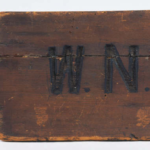lardypoison-deactivated20150405:
SPEAK YOUR OWN LANGUAGE DAY
during the 19th century in britain, there were many stereotypes about welsh people. they were considered lawless, violent, and stupid.
these stereotypes existed as a result of social unrest in the country. people were rioting, fighting and protesting, usually against general poverty and corporate greed.
many believed the welsh were like this because of their poor education, so, in March of1846, william williams, the MP for coventry, called for an inquiry into the state of education in wales, in england’s house of commons.
this resulted in three english noblemen, r. r. w. lingen, jellynger c. symons and h. r. vaughan johnson, visiting the country, taking notes commentaries and statistics on the overall quality of life and education in wales, including religion and moral standing, in what were called “the blue books”. these books caused great agitation to the welsh people, who considered them to be “treacherous”. a representative for the national library of wales stated that “as a result of the ‘treachery of the blue books’ the welsh people began to harbour a complex about their image in the face of the world, and the influence of the report has not completely waned even to this day.”
soon, the welsh language was stigmatised even by its own people, and the “we;sh not” was put into use. the welsh not was a piece of wood with the words “welsh not” or “w.n” written upon it, and placed on a piece of string like a necklace. any child in school caught speaking welsh would have to wear the welsh not, and pass it to the next student caught speaking welsh, until the end of the day. the child wearing it at the end of the day would be severely punished, usually with a cane.

